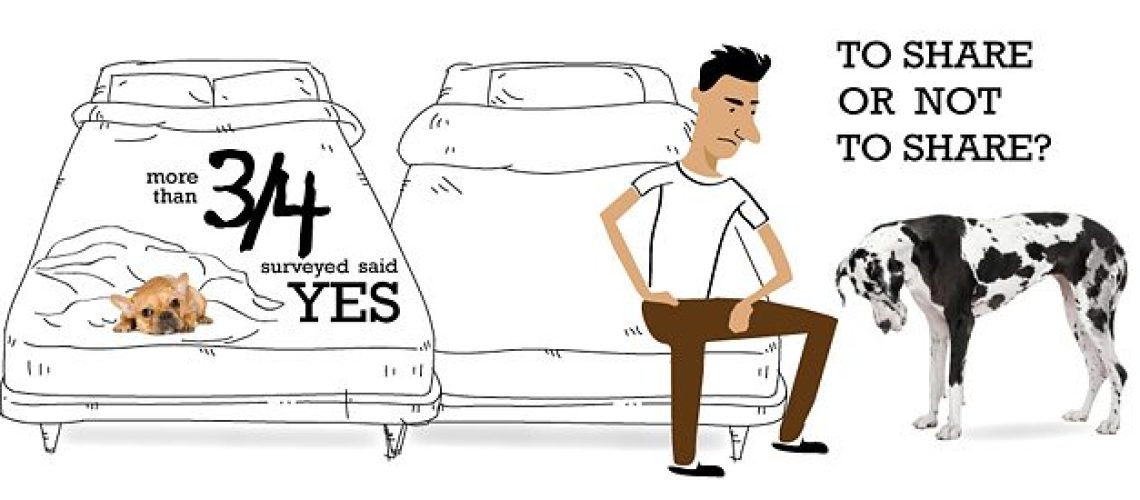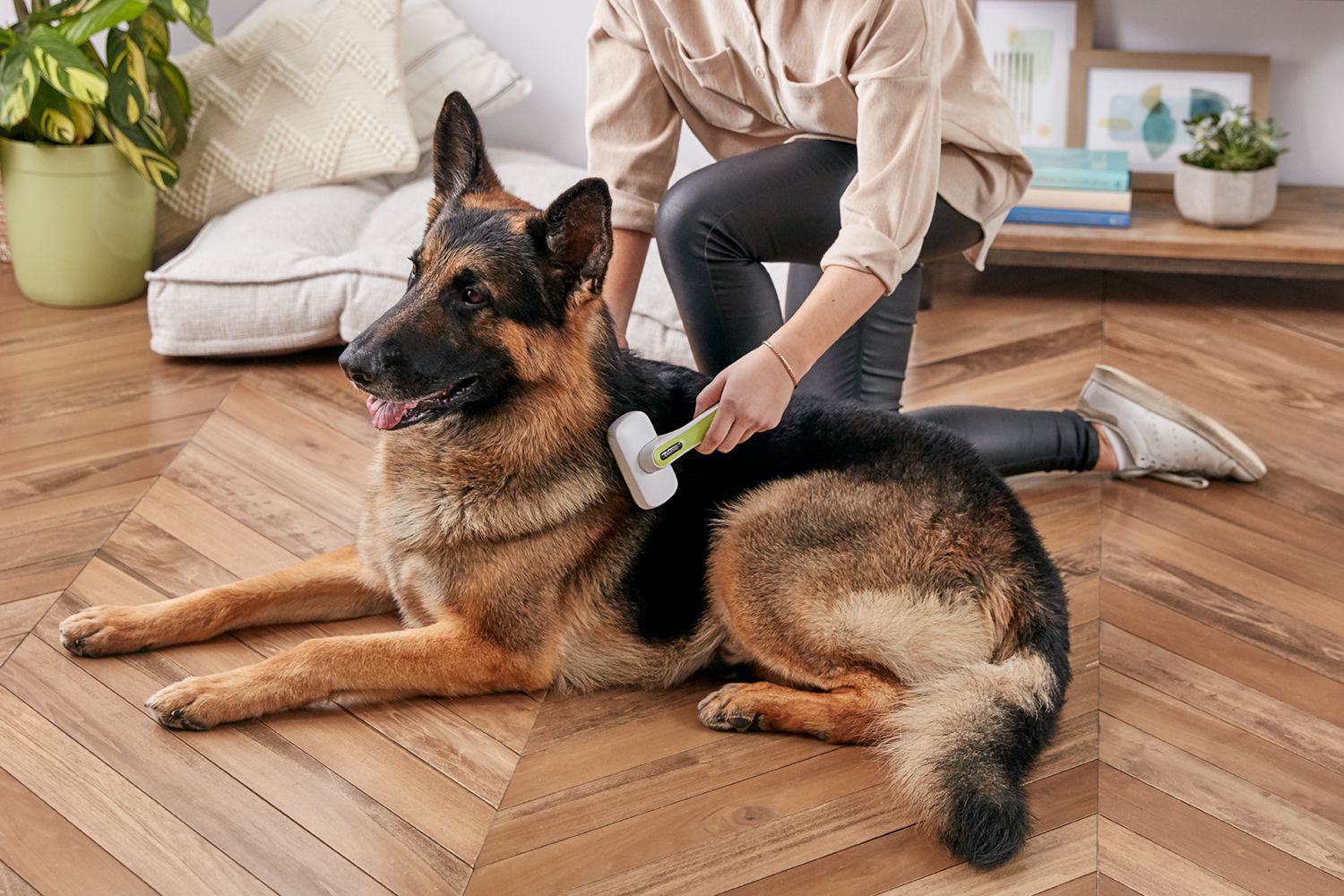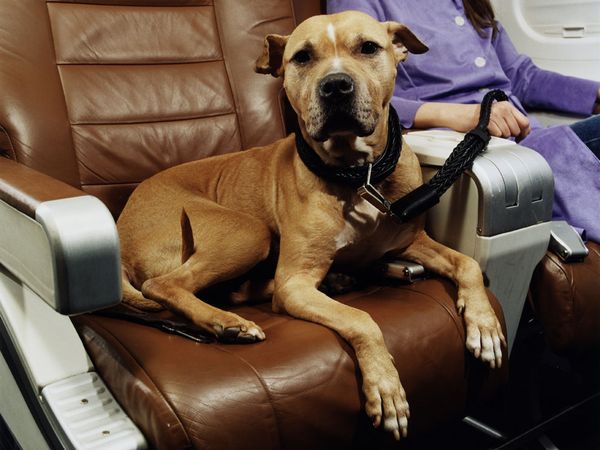Are you debating whether or not to let your furry friend snuggle up with you at night? Discover the pros and cons of allowing your dog to sleep on your bed and make an informed decision for a peaceful night's sleep.
Key Takeaways:
- Allowing your dog to sleep on your bed can strengthen the bond between you and your pet.
- Sharing a bed with your dog can provide comfort and security for both of you.
- However, allowing your dog on the bed may disrupt your sleep and cause hygiene concerns.
- Consider factors such as allergies, shedding, and behavioral issues before deciding whether to let your dog sleep on your bed.
- If you choose to allow your dog on the bed, establish boundaries and train them to follow specific sleeping positions or use a separate blanket or bed.
Why do some people let their dogs sleep on their bed?
For many dog owners, allowing their furry companions to sleep on the bed is a way to strengthen the bond they have with their pets. Dogs are social animals and enjoy being close to their humans, so sharing sleeping space can make them feel more secure and loved. Some people also find comfort in having their dog nearby at night, as it provides a sense of companionship and can help reduce feelings of loneliness or anxiety.
Additionally, letting your dog sleep on your bed can be a practical choice. Dogs are known for their warmth, and having them snuggle up next to you can provide extra warmth during colder nights. It can also save you from having to invest in a separate dog bed, especially if your dog prefers sleeping close to you.
The Benefits of Letting Your Dog Sleep on Your Bed
1. Bonding: Sharing the bed with your dog can strengthen the bond between you two, creating a sense of closeness and trust.
2. Comfort and security: Dogs often find comfort in being near their owners while sleeping, which can help reduce separation anxiety or stress.
3. Warmth: Dogs naturally give off body heat, so having them sleep beside you can provide extra warmth during colder nights.
Potential Drawbacks and Risks of Dogs Sleeping on Your Bed
1. Allergies: If you or someone in your household has allergies, allowing your dog to sleep on the bed may exacerbate symptoms.
2. Disrupted sleep: Some dogs may move around or snore during the night, which could disturb your sleep quality.
3. Hygiene concerns: Dogs can bring dirt, allergens, or parasites into your bed, which may require extra cleaning and maintenance.
How Does Sleeping on the Bed Affect the Bond Between a Dog and Its Owner?
Allowing your dog to sleep on the bed can have a positive impact on the bond between you and your furry friend. Dogs are pack animals, and sleeping together can reinforce their sense of belonging within their human family. It creates a shared space where they feel safe, loved, and connected to their owner. This closeness can lead to a stronger emotional bond and increase feelings of trust and security between you and your dog.
Can Letting Your Dog Sleep on Your Bed Affect Your Quality of Sleep?
While some people find comfort in having their dog sleep on the bed, it's important to consider how it may affect your quality of sleep. Some dogs may move around or take up space, potentially disrupting your sleep. Additionally, if your dog snores or has restless sleep patterns, it could further impact your ability to get a good night's rest. It's essential to assess whether having your dog on the bed enhances or hinders your own sleep quality and make adjustments accordingly.
Special Considerations for Allergies When Letting Your Dog Sleep on Your Bed
If you or someone in your household has allergies, allowing your dog to sleep on the bed may not be advisable. Dogs can carry allergens such as dander or pollen that can trigger allergic reactions in sensitive individuals. It's crucial to consult with an allergist or medical professional before deciding whether to allow your dog on the bed if allergies are a concern.
Establishing Boundaries and Rules for Dogs Sleeping on Your Bed
To maintain harmony when allowing dogs to sleep on the bed, it's important to establish clear boundaries and rules. This can include teaching your dog to wait for an invitation before joining you on the bed, ensuring they have their own designated space on the bed, and setting limits on movement during sleep. Consistency and positive reinforcement through training can help establish these boundaries effectively.
The Importance of Hygiene Practices When Allowing Dogs to Sleep on Your Bed
When allowing dogs to sleep on your bed, it's crucial to prioritize hygiene practices. Regularly washing your bedding, vacuuming the mattress, and grooming your dog can help minimize allergens, dirt, or parasites that may be brought into the bed. It's also advisable to keep your dog up-to-date with vaccinations and regular check-ups with a veterinarian to ensure their overall health and cleanliness.
Alternative Sleeping Arrangements for Dogs If Not Allowed on the Bed
If you decide not to let your dog sleep on the bed, there are alternative sleeping arrangements you can provide. Investing in a comfortable dog bed or crate can offer a designated space for your furry friend while still keeping them close by. Ensure that the sleeping area is cozy, well-ventilated, and located in a quiet part of your home. Introducing positive associations like treats or toys can help encourage your dog to view their sleeping area as a comfortable and safe space.
The Benefits of Letting Your Dog Sleep on Your Bed
1. Increased Bonding:
Allowing your dog to sleep on your bed can strengthen the bond between you and your furry companion. Sharing a sleeping space creates a sense of closeness and intimacy, which can enhance the emotional connection between you and your pet. It can also provide comfort and security for both you and your dog, promoting feelings of trust and affection.
2. Reduced Anxiety:
Sleeping in close proximity to their owner can help alleviate anxiety in dogs. Being near you provides a sense of reassurance and safety, which can be particularly beneficial for dogs that suffer from separation anxiety or fear-related issues. The presence of their human companion can help them feel more relaxed, leading to better sleep quality for both the dog and the owner.
However, it is important to note that not all dogs may benefit from sleeping on the bed. Some dogs may have specific needs or behavioral issues that make it unsuitable for them to share a sleeping space with their owners.
Potential Drawbacks and Risks of Dogs Sleeping on Your Bed
1. Disrupted Sleep:
Having a dog on your bed can disrupt your sleep patterns. Dogs may move around during the night, snore, or take up too much space, causing discomfort and disturbances that affect your sleep quality. This is especially true if you are a light sleeper or have difficulty falling asleep.
2. Hygiene Concerns:
Sharing a bed with a dog raises hygiene concerns as they may bring dirt, allergens, parasites, or even bacteria into the sleeping area. This can potentially lead to allergies or infections for both you and your pet if proper hygiene practices are not followed.
To mitigate these risks, it is essential to establish boundaries and rules for dogs sleeping on your bed, as well as maintaining good hygiene practices.
How Does Sleeping on the Bed Affect the Bond Between a Dog and Its Owner?
The Emotional Connection
Sleeping on the bed can strengthen the bond between a dog and its owner. Dogs are social animals that thrive on companionship, and being allowed to sleep on the bed allows them to feel close to their human. Sharing sleeping space can create a sense of security and comfort for both parties, fostering a deeper emotional connection.
Increased Trust and Dependence
When a dog is allowed to sleep on the bed, it signifies trust and dependence from the owner's perspective. Allowing a dog into such an intimate space demonstrates that they are an important part of the family unit. This can lead to increased loyalty, obedience, and overall satisfaction in the dog-owner relationship.
Can Letting Your Dog Sleep on Your Bed Affect Your Quality of Sleep?
Potential Sleep Disruptions
While having a dog sleep on your bed can be comforting, it may also affect your quality of sleep. Dogs may move around during the night, snore, or take up more space than desired. These factors can disrupt your sleep patterns, leading to restless nights and potential fatigue during the day.
Allergies and Hygiene Concerns
If you have allergies or sensitivities to pet dander, allowing your dog to sleep on your bed can worsen symptoms. Pet dander can accumulate in bedding materials over time, triggering allergic reactions or respiratory issues. Additionally, dogs may bring dirt or outdoor allergens into bed with them, further exacerbating these concerns.
Special Considerations for Allergies When Letting Your Dog Sleep on Your Bed
Frequent Cleaning and Washing
To minimize allergy risks when letting your dog sleep on your bed, it's important to establish a regular cleaning routine. Wash your bedding frequently using hot water and allergen-reducing detergents. Consider using hypoallergenic pillow and mattress covers to create a barrier against pet dander.
Consulting with an Allergist
If you have severe allergies, it may be necessary to consult with an allergist before allowing your dog to sleep on your bed. They can provide personalized advice and recommend specific measures or treatments to manage your allergies effectively.
Establishing Boundaries and Rules for Dogs Sleeping on Your Bed
Training and Consistency
To maintain a healthy balance, it's essential to establish boundaries and rules when allowing dogs to sleep on your bed. Train your dog to understand commands such as "off" or "stay" when they are not allowed on the bed. Consistency is key in reinforcing these rules, ensuring that both you and your dog understand the expectations.
Providing Alternative Comfortable Spaces
To prevent any confusion or frustration, provide alternative comfortable sleeping spaces for your dog. This can include a designated dog bed or a cozy corner in the bedroom. Make sure these spaces are enticing by adding soft bedding, toys, and familiar scents that make them feel secure.
The Importance of Hygiene Practices When Allowing Dogs to Sleep on Your Bed
Frequent Bathing and Grooming
Maintaining good hygiene practices for both you and your dog is crucial when allowing them to sleep on your bed. Regularly bathe and groom your dog to minimize dirt, odors, and shedding. This will help keep the bedding cleaner for longer periods.
Paw Cleaning Before Bedtime
Before bedtime, make it a habit to clean your dog's paws thoroughly. This will remove any outdoor debris or potential allergens they may have picked up during walks. Use a damp cloth or pet-safe wipes to wipe their paws, ensuring a cleaner sleeping environment.
Alternative Sleeping Arrangements for Dogs If Not Allowed on the Bed
Dog Beds and Crate Training
If you prefer not to allow your dog on the bed, providing them with a comfortable dog bed can be a great alternative. Choose a bed that suits their size and preferences, and place it in a quiet area of your home. Additionally, crate training can create a safe and cozy space for your dog to sleep in.
Cozy Blankets or Mats
Another option is to provide your dog with cozy blankets or mats in designated areas of the house. These can be placed in rooms where you spend most of your time, allowing your dog to be close by while still maintaining boundaries.
Remember, every dog-owner relationship is unique, so finding the sleeping arrangement that works best for both you and your furry friend is essential for a harmonious household.
| Conclusion | |
| Yes, allow your dog to sleep on your bed if: | No, don't allow your dog to sleep on your bed if: |
| - You enjoy the companionship and comfort it provides - It doesn't disrupt your sleep or cause allergies - Your dog is well-behaved and respects boundaries |
- You have allergies or asthma that may worsen - Your dog's presence affects the quality of your sleep - Your dog shows aggressive behavior or dominance issues |

















